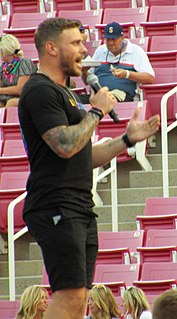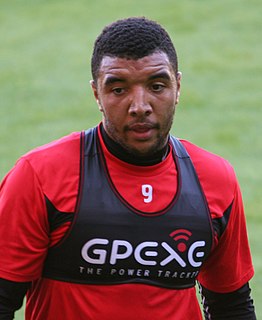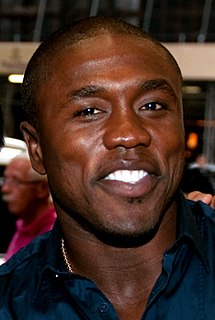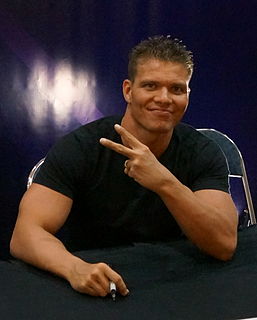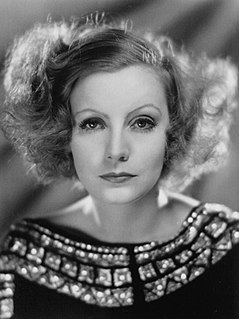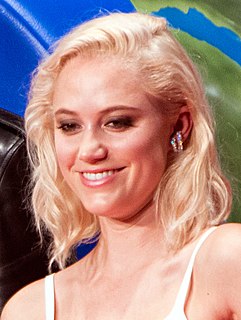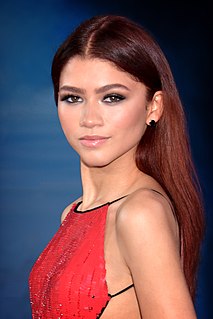A Quote by Gus Kenworthy
I always felt like I had something to prove, like I had to work twice as hard to make sure I got it. I knew I didn't want to be a good skier. I wanted to be the best.
Related Quotes
It's a different mindset. Coming from where I come from, we always had to defeat the odds. We didn't have what other people had. We had to work twice as hard for everything. To be noticed to be seen. Even back then it drove me to be the best that I can be. I wanted everyone to know I was somebody you had to watch.
I'm a work horse. I like to work. I always did. I think that there is such a thing as energy, creation overflowing. And I always felt that I have this great energy and it was bound to sort of burst at the seams, so that my work automatically took its place with a mind like mine. I've never had a day when I didn't want to work. I've never had a day like that. And I knew that a day I took away from the work did not make me too happy. I just feel that I'm in tune with the right vibrations in the universe when I'm in the process of working. ... In my studio I'm as happy as a cow in her stall.
One of the first speaking roles I had was in a film called 'Svengali', with Peter O'Toole and Elizabeth Ashley. I was a waiter, and I had about three lines. And I was ready! I had been around people like that, and I knew they were just actors. All the work I had done, it was all there, and I felt like I knew all the mechanics.
I could take the greatest deal-makers of all time and they've always had something that didn't quite work out. You never want to put yourself in the position where something not working out is bigger than what you are and therefore takes you down. It's got to be in smaller chunks. In all cases, I want to learn something from things that didn't quite work out and learn, so that it doesn't happen again or so that in the future, you make great decisions. You don't want to make the same mistake twice and you have to learn that early on in your life.
I felt like I had lost something. But not something silly, like my keys or my gum; more like my arm or my foot, something that really mattered. Like something that I could live without, but would make life much harder if it were missing. And life is hard enough. Life is hard enough with everything we're given.
Sizing was also important to me; I wanted to make sure that nobody felt alienated or felt like they weren't thought about in the process of this brand. I wanted to make sure that everyone felt included, which brings us to the gender neutral pieces - the idea of wearing what you want and whatever makes you feel comfortable and confident. I think that's the overall feeling of the Daya collection.
I felt like I had kind of played it out, and I wanted to see what was next, and then came Mythbusters. You know, it's the best job I've ever had, on its worst day it's better than anything else, but it's a huge amount of responsibility, and there are days when just going into work and building something from someone else's drawing sounds like going back to heaven.
